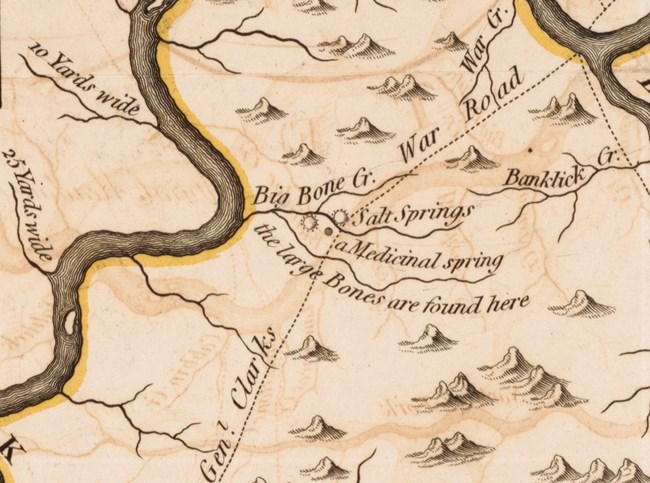Last updated: July 31, 2023
Article
Lost Fossils of Big Bone Lick

John Filson, "A Map of Kentucky" (London: J. Stockade, 1793). Library of Congress, Geography and Map Division
Lewis packed the fossils up with other things he had collected at Fort Mandan, where they spent the winter of 1804–1805, onto a boat. The vessel went down the Missouri and Mississippi Rivers and was supposed to then take the Gulf of Mexico out to the Atlantic Ocean, then circle around to the Chesapeake Bay, to deliver the items to Thomas Jefferson in Virginia.
But they never made it. The boat sank near the town of Natchez, Mississippi. All the items that Lewis had taken from Indigenous and natural sites, from Pennsylvania to North Dakota, sank to the muddy bottom of the river.
Jefferson was disappointed that the fossils had been lost. In 1807, he sent William Clark to Big Bone Lick to spend three weeks excavating the site. Clark removed over 300 fossils, which he shipped to Jefferson. Those objects—taken from a site important to Indigenous communities from the Ohio Valley—are now in the collection of the American Philosophical Society.
About this article: This article is part of a series called “Pivotal Places: Stories from the Lewis and Clark National Historic Trail.”
